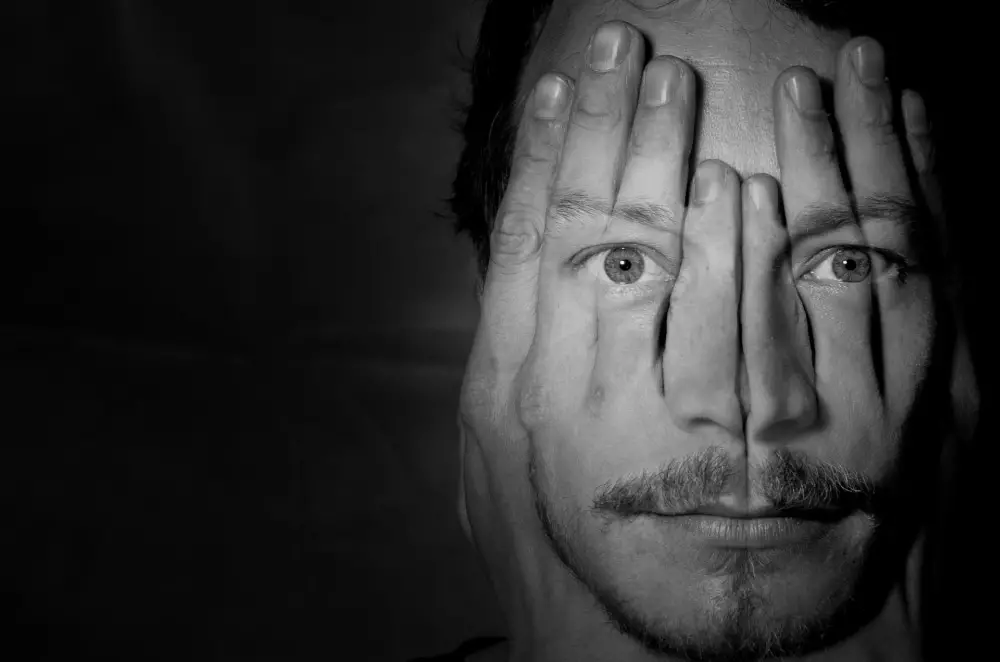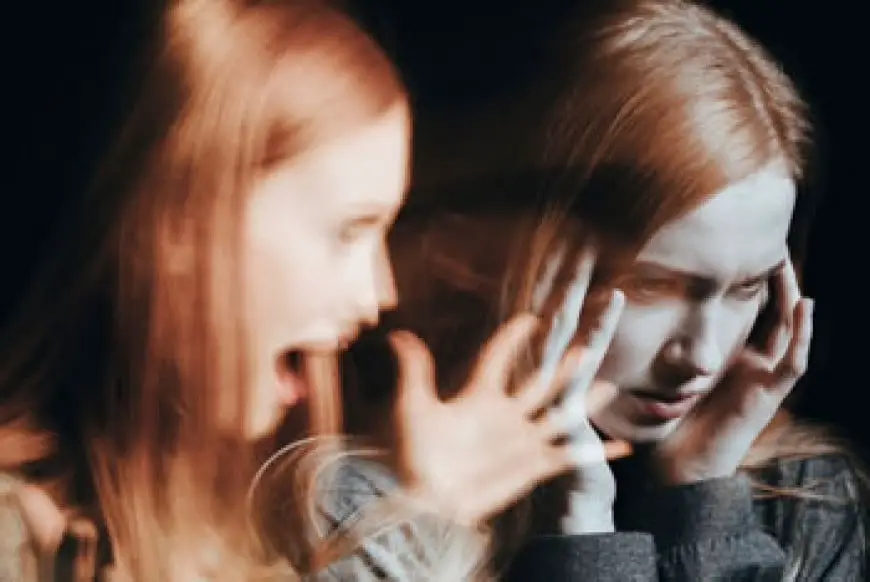Momentary changes in mood, even those that last only a few seconds, profoundly alter the brain’s response to pleasant experiences in people with bipolar disorderaccording to a new study led by researchers at UCL.
The research was published in the journal Biological Psychiatry Global Open Science.
Bipolar disorder
Previous research shows that mood can make us experience events in a more positive or negative light, regardless of bipolar disorder. When we are in a good mood, we are led to see things more favorably, causing the good mood to reverse and gain momentum.
Likewise, when we are upset, we are inclined to perceive negative outcomes as even worse, becoming upset or even more upset.
This mood “boost” can influence how we perceive events and the decisions we make.
Co-lead author Dr Liam Mason (UCL Psychology & Language Sciences) said: “Imagine going to a new restaurant for the first time. If you happen to be in a great mood, you are likely to perceive the experience as even better than it actually is.”
However, the new study found that people with bipolar disorder are more prone to this mood bias. The researchers also discovered the connections in the brain that drive this mood-biasing effect.
For the new study, researchers studied what happens in the brains of people with bipolar disorder as they play a computerized roulette game in which they experienced positive and negative outcomes.
The researchers used a technique called functional magnetic resonance imaging (fMRI) to scan the brains of 21 participants with bipolar disorder and 21 control participants as they played a game. This allowed them to monitor participants’ neural responses during moments of winning and losing. They measured the extent to which these “reward signals” in the brain were affected by micromood fluctuations over a matter of seconds.

To achieve this, the researchers used a computational model to quantify the mood boost participants experienced based on recent results. They assessed whether, during periods of upward momentum (a streak of victories), the brain was more responsive to subsequent victories and vice versa for periods of negative momentum.
The team observed heightened neural activity in the anterior insula, an area of the brain linked to transient moods, during periods of upward momentum in both control participants and those diagnosed with bipolar disorder.
However, only participants with bipolar disorder showed a more pronounced influence of this momentum on their perception of subsequent victories and defeats, as the researchers observed greater activation in their striatum, a brain region that responds to pleasant experiences.
Importantly, the researchers also highlighted that the amount of communication between these two regions – striatum and anterior insula – was reduced in participants with bipolar disorder.
Co-lead author Dr Hestia Moningka (UCL Psychology & Language Sciences) said: “In the control group, the insula and striatum both activated together, suggesting that participants were better able to keep in mind the their ‘mood’ when they perceived the rewards. in the task.

“Meanwhile, participants with bipolar disorder showed the opposite: When there was greater momentum, they were less able to put this aside and how exciting they found the rewards.”
The researchers believe these findings may help explain why people with bipolar disorder can get stuck in a “vicious cycle” in which their mood worsens and sometimes leads them to take greater risks than usual.
Dr Moningka said: “We think these findings could help us one day move beyond existing interventions that aim to regulate mood, often at the cost of dampening emotional experiences.
“Instead, new interventions that help people with bipolar disorder better separate their mood from their perceptions and decisions are one avenue we are examining.”
Alcohol consumption linked to mood instability in patients with bipolar disorder
According to a study published online in JAMA Network Open, alcohol consumption is associated with mood instability (depression and manic symptoms) in people with bipolar disorder (BD).
Sarah H. Sperry, Ph.D., of the University of Michigan at Ann Arbor, and colleagues characterized longitudinal patterns of alcohol use in bipolar disorder and examined temporal associations between alcohol use, mood, anxiety, and functioning in bipolar disorder. time. The analysis included data from 584 participants in the Prechter Longitudinal Study of Bipolar Disorder. Participants had a diagnosis of BD type I (76.2%) or BD type II (23.8%).

Over a median follow-up of nine years, researchers found that more problematic alcohol use was associated with worse depressive and manic or hypomanic symptoms, as well as worse workplace functioning over the following six months.
Increased depressive and manic or hypomanic symptoms were not associated with greater subsequent alcohol use. The associations were more pronounced in bipolar II disorder, compared to bipolar I disorder. Over time, alcohol use was not associated with anxiety.
“The results of this study suggest that there is an association between alcohol consumption and mood and occupational functioning, highlighting the importance of dimensional and longitudinal assessment and management of alcohol consumption, which should be integrated into research and in the standard treatment of bipolar disorder,” the authors write.
A new technique tested to manage mood swings in bipolar disorder
Researchers conducted a study to identify how an existing psychological therapy could be adapted to help people cope with and manage frequent bipolar mood swings.
A subgroup of individuals with bipolar spectrum disorders experience continuous mood fluctuations outside of full episodes. These mood changes can sometimes make it difficult to live life to the fullest and can be a source of difficulty in relationships with others. There are currently few treatment options available for people living with dramatic weekly, daily, or even hourly mood swings.
The ThRIVe-B programme, led by researchers at the University of Exeter, involved taking an existing psychological therapy for another group of people that aims to help with emotion regulation, known as Dialectical Behavior Therapy (DPT), and adapting it for people who have these frequent bipolar mood swings.
DPT teaches skills in both acceptance of situations and emotional responses and is currently offered to people who have a diagnosis of emotionally unstable personality disorder.

“We have psychological therapies that can be helpful for people with bipolar, but there are fewer available for people who have very frequent and ongoing mood swings in bipolar disorder,” said lead author Dr. Kim Wright, from the University of Exeter.
“We wanted to see how acceptable the therapy would be to people who received it and do a test to identify what changes needed to be made before conducting a larger trial.”
The study took place in Devon and Cumbria and 43 participants were randomly placed into two groups.
Half of the participants received the new therapy. The other half continued with their usual NHS care.
Therapy lasted approximately six months and participants were interviewed at various stages and asked to complete questionnaires at the start of the study and three, six, nine and 15 months later.
Participants were asked to reflect on their behavioral response to extreme mood and arousal states on a day-to-day basis and to modify them where necessary.
In DPT this is achieved by developing mindful awareness skills and providing participants with a framework through which to evaluate their emotional responses and develop alternative ways of relating to and managing them.
The therapy involved attending 16 group sessions and also some individual sessions with a therapist.

To support this, there were home exercises, handouts and a ThrIVe-B smartphone app where participants could rate their mood.
“Due to the limited number of people tested, the study was never intended to evaluate the benefit of the treatment itself. Instead, the study aimed to evaluate the feasibility and acceptability of this therapy,” explained Dr. Wright.
“Overall, the study shows that there is a demand among people with bipolar for a psychological therapy that addresses ongoing mood instability, and that a larger study of a therapy like this is feasible.
“Our next step will be to refine the therapy in line with what we have learned from this study, such as simplifying the content and considering individual rather than group administration.”
#Bipolar #disorder #Identify #brain #regions #influence #response #pleasure

